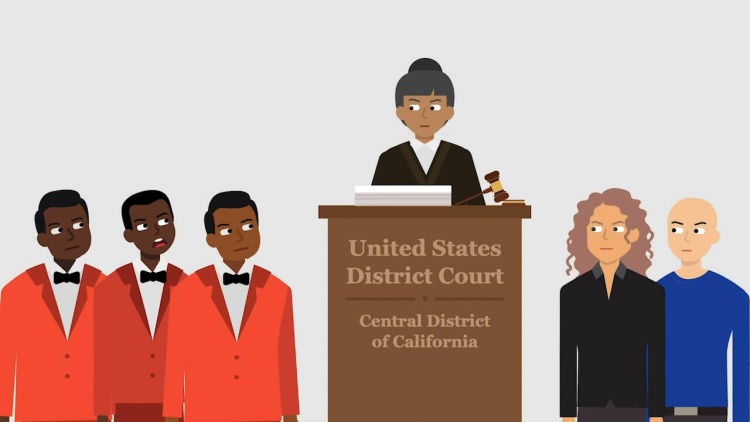Three Boys Music Corp. v. Bolton
United States Court of Appeals for the Ninth Circuit
212 F.3d 477 (2000), cert. denied, 121 S.Ct. 881 (2001)

- Written by Cynthia (Anderson) Beeler, JD
Facts
In the 1960’s, popular soul and Motown artists the Isley Brothers released a song entitled Love is a Wonderful Thing (the Isley song). Though other songs by the Isley Brothers were often highly ranked in national music charts, the the Isley song was never ranked in a top 100 list. However, experts testified that the Isley song was played for a period of a few weeks in 1966 on radio stations in Connecticut. In 1990, Michael Bolton (defendant) and Andrew Goldmark (defendant) co-wrote a song entitled Love is a Wonderful Thing (Bolton’s Song), which was released in 1991 and topped the year-end pop chart at number 49. Bolton made a name for himself in the 1980s and 1990s by recording soul music like the music that was popular in the 1960s. Bolton was a fan of soul music from the time he was around 10 or 11 years old, and he was about 13 when the Isley song was being played on the radio. Likewise, Goldmark listened to soul music from a young age and was about 14 years old when the Isley song was being played. Both Goldmark and Bolton lived in Connecticut when the Isley song was on the radio. Three Boys Music Corporation (Three Boys) (plaintiff) was the copyright holder of the Isley song in the 1990s. Three Boys sued Bolton and Goldmark for copyright infringement and were awarded $5.4 million in a jury trial. Bolton and Goldmark appealed the decision.
Rule of Law
Issue
Holding and Reasoning (Nelson, J.)
What to do next…
Here's why 911,000 law students have relied on our case briefs:
- Written by law professors and practitioners, not other law students. 47,100 briefs, keyed to 997 casebooks. Top-notch customer support.
- The right amount of information, includes the facts, issues, rule of law, holding and reasoning, and any concurrences and dissents.
- Access in your classes, works on your mobile and tablet. Massive library of related video lessons and high quality multiple-choice questions.
- Easy to use, uniform format for every case brief. Written in plain English, not in legalese. Our briefs summarize and simplify; they don’t just repeat the court’s language.





